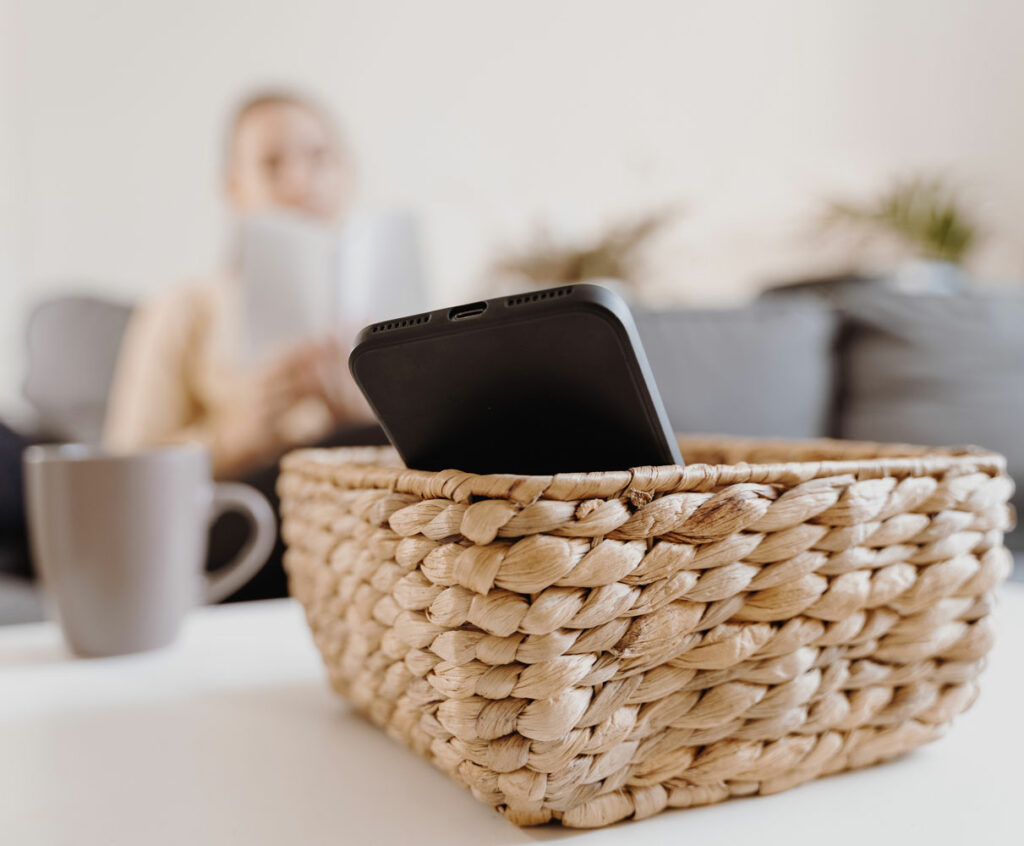By Christa Banister
Have you ever picked up your phone and opened, say, Instagram without even meaning to?
I definitely have, and it unnerved me. When scrolling social media apps becomes so second nature that it’s practically a reflex, that can’t be healthy, right?
As you may have suspected, research overwhelmingly shows that unplugging, even for a short duration, has a tangible upside for our overall health, mental wellness, and our relationships.
Research overwhelmingly shows that unplugging, even for a short duration, has a tangible upside for our overall health, mental wellness, and our relationships.
The Surprisingly Physical Toll
The overuse of technology wreaks havoc on our bodies in surprising ways.
The New York Times reports how our collective fascination with technology causes trouble with basic situational awareness. “Inattentional blindness” — what experts are calling a distracted state of being — poses serious challenges. It involves the act of getting from point A to point B with our heads buried in our phones.
Whether it’s driving, biking, or crossing a busy intersection on foot, being glued to a device is an injury risk for both you and your fellow citizens. Health experts have discovered that walking with our phones actually changes how we move as well. Research published by Sage Journals notes how people move roughly 10% slower than their unencumbered counterparts.
Too much walking and texting, rather than standing upright, can increase the tension placed on the neck and upper back muscles, creating a condition nicknamed “text neck.” A Gait & Posture study on walking stability while using a cell phone reveals how struggles with balance can lead to falls and injuries over time.
The blue light from our screens is also messing with our sleep, which is crucial for optimum body function, avoiding weight gain, and fighting off illness. When you’re not getting your full eight hours on a regular basis, a recent study shared in Forbes shows there can be a higher buildup of beta amyloid plaque in the brain, a condition often seen in Alzheimer’s patients.
When “Likes” Lead to Diminished Mental Wellness

It’s probably tempting to believe that someone “liking” a post is a net positive. But that little surge of adrenaline comes with a steep price tag. Especially when something shared in the future maybe doesn’t generate as much enthusiasm.
A two-year study conducted by American Journal of Epidemiology indicated that people liking each other’s content and clicking on various links led to a significant reduction in life satisfaction and how participants felt physically and emotionally. What might happen if adolescents in particular chose to disconnect? A decrease in anxiety and depression is possible.
No matter what age you are, unplugging will improve your real-life relationships. By making your technology less of a priority, you have more time with the people you care about most. As a result, you can find a mood boost and much deeper sense of belonging than that of superficial online interactions. It also provides an opportunity to build an authentic community — one with members you can celebrate with and turn to when life isn’t going so well.
Kick-Starting A Digital Detox
Truth be told, we all probably struggle with FOMO (fear of missing out) to varying degrees. It’s not enough to watch the Super Bowl anymore. We need to know what our online friends think of the half-time performance and how the teams played.
VerywellMind.com research shows that a digital detox can help combat your fear of missing out by setting preestablished limits on your digital consumption. It can also help if you are struggling with obsessive comparison disorder, a newer phenomenon that’s surfaced amidst the comparison culture technology has helped to cultivate.
But how much screen time is too much? What are the signs that we need to break up with our tech, at least temporarily, from time to time?
- You check your phone every few minutes, maybe even unconsciously.
- You feel let down, depressed, anxious, or angry after scrolling social media.
- You check your “likes” frequently after posting something.
- You stay up much too late or wake up really early to have more phone time.
- You struggle to concentrate because you’re constantly multitasking with your phone.
- You feel anxious or stressed if you forgot your phone when you’re out and about.
No doubt, we’ve all felt at least one of those. Which is why it’s so beneficial to take a step back and reset. It doesn’t even have to be a complete disconnect to be effective. Setting aside a few hours a day — or a full 24-hour period per week — to unplug can make a significant difference.
How to Turn Off and Tune In
Now that you’ve seen the many benefits of unplugging, how does intention become action?
Rome wasn’t built in a day, and neither are new routines, so it’s important to be realistic. Start small in creating healthy habits. A complete digital detox off the grid is probably too ambitious for most.
A technology break, however, can involve setting reasonable limits. Setting aside a few hours a day with other activities will retrain your brain not to immediately reach for the phone.
Setting aside a few hours a day with other activities will retrain your brain not to immediately reach for the phone.
Maybe you resolve that dinner time with family shouldn’t involve bringing your phone to the table. Or perhaps you go to a movie, concert, or a sporting event and don’t scroll — or take pictures or video — while you watch.
Disabling your push notifications also helps combat FOMO. If you’re not constantly prompted to look at your tech, it eventually won’t have first priority. Which will undoubtedly make your offline life richer and far more fulfilling.
Get Back on Track at Claudia Black
Have you tried and failed repeatedly to get your tech habit — or any other habit — under control, and it’s starting to negatively affect your health, relationships, and other areas of your life? Our caring team of experts at Claudia Black Young Adult Center can help. We are here for young adults who struggle with mental health issues, mood disorders, emotional trauma, and addiction. With a variety of therapy techniques tailored to your specific concerns, healing and wholeness is possible. Contact us for more information.

